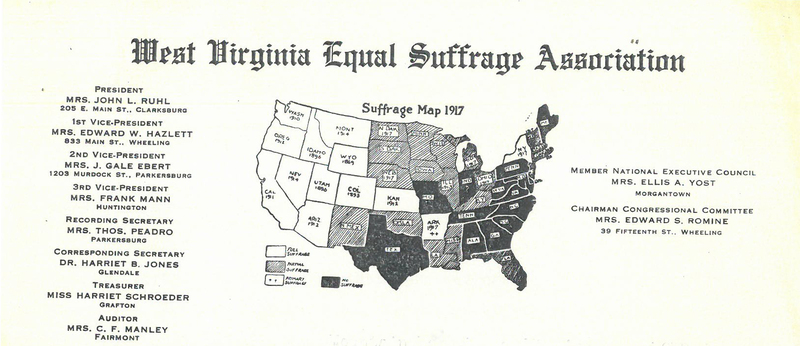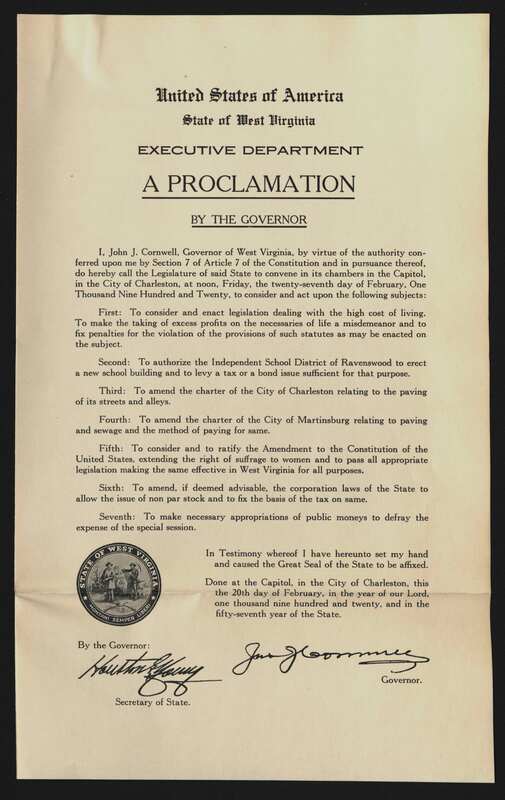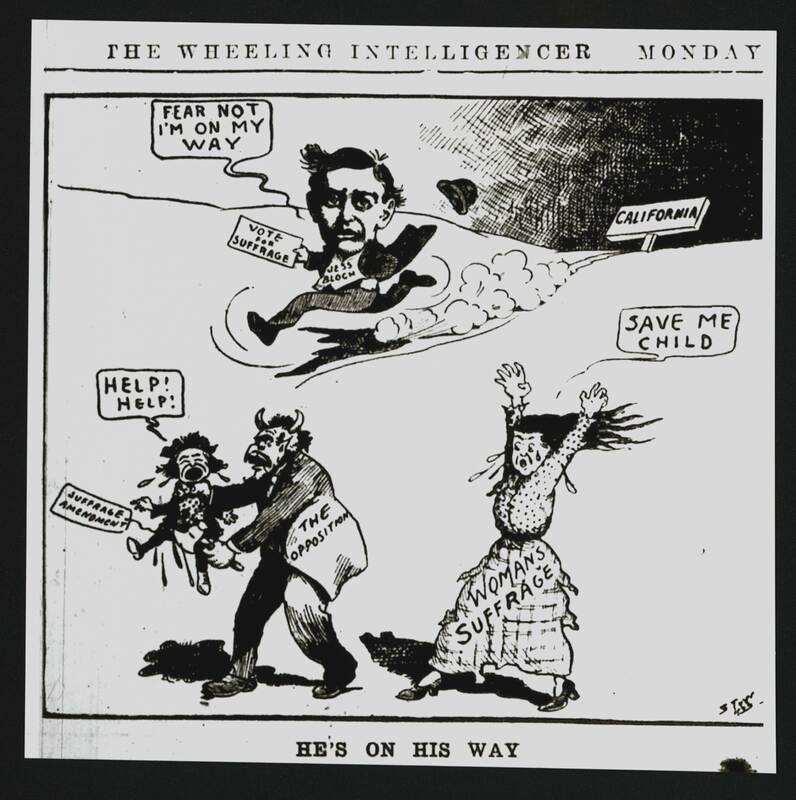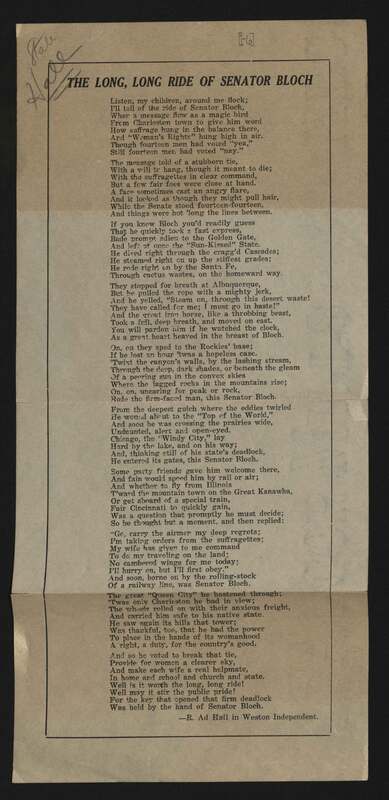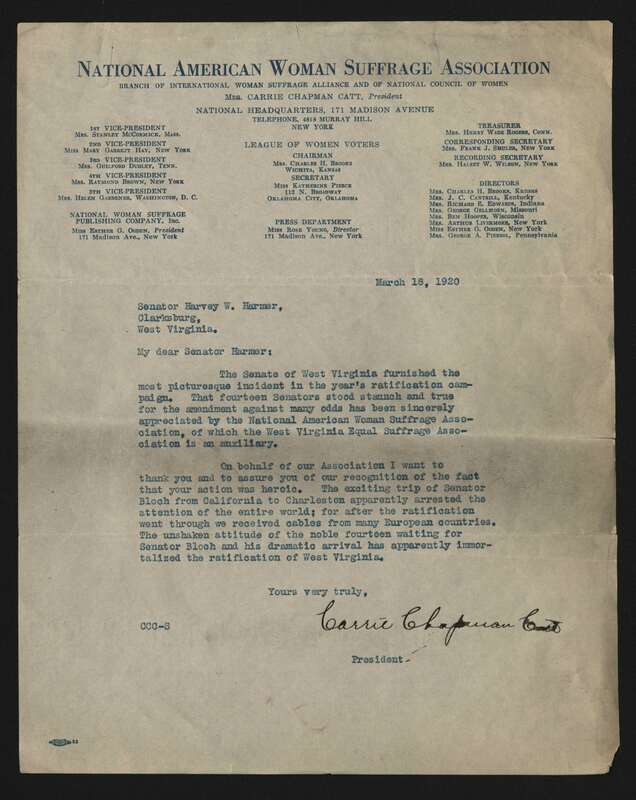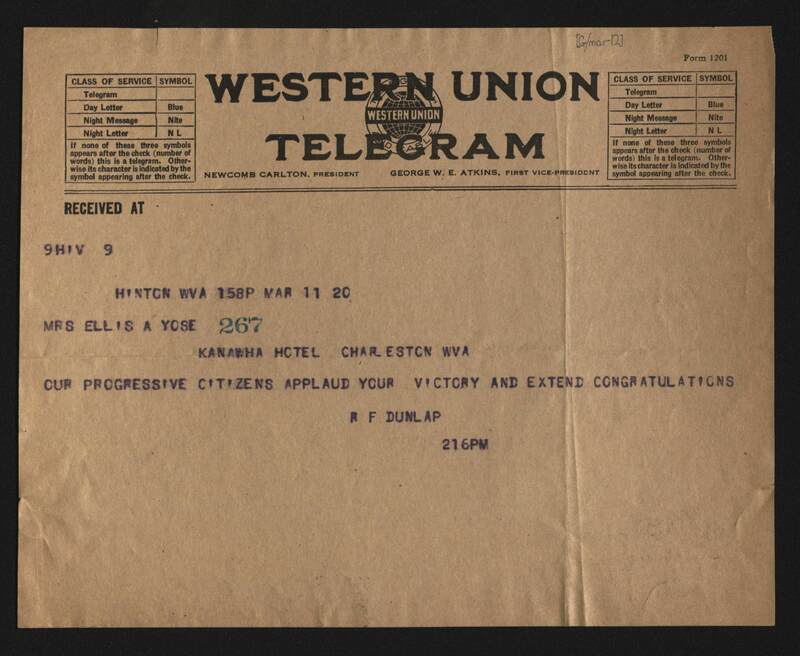Ratification of the 19th Amendment
After the landslide defeat in 1913, a few changes took place in the WVESA. At the 1917 Convention, Julia Ruhl was elected president as Lenna Yost choose not to stand for reelection. World War I interrupted the campaign as suffragists devoted their time to the war effort. Lenna Yost noted the “inconsistency of fighting for democracy abroad and refusing a true democracy at home.”
The 19th Federal Amendment Ratification Struggle
In June 1919, the U.S. Congress voted to send the proposed 19th amendment to the state legislatures for ratification decisions. In West Virginia, as the scheduled legislative session drew closer to the end, Governor John Cornwell was under pressure to decide whether to call a special session of the legislature. Cornwell, though pro-suffrage, felt holding a special session to settle this one issue was an unwise expense, however a tax question also had to be addressed. On February 20, 1920, Cornwell issued a proclamation for a special session to convene to consider and act upon seven subjects, including ratification of the 19th amendment.
Drama in the WV Senate
At the opening of the regular session, a comfortable majority from both houses had pledged yes votes for ratification. But as soon as the special session convened the majority in favor “were dropping away from ratification as ripe cherries drop from trees.” A large force of anti-suffrage lobbyists had descended on the capitol to reverse the momentum. The vote in the Senate was now tied. Pro-suffrage Senator Jesse Bloch had already left for a vacation in California, certain at the time the ratification would happen and his vote was not needed. Word was rapidly sent to Bloch to return to West Virginia to break the tie. Within two days Bloch, traveling by only land transportation, was in the Senate Chamber voting for the 19th amendment. In those two days Senator Harvey Harmer held the line on the senate floor and Lenna Yost countered the anti-suffragist lobby’s attempt to defeat ratification.
A Last Ditch Effort by Anti-Suffragists
On March 10, 1920, West Virginia became the 34th state to ratify the 19th Amendment when the State Senate voted to approve the amendment by a single vote. In an effort to thwart momentum towards national ratification, opponents of suffrage circulated false reports that the amendment had failed in West Virginia. In this original telegram, former U.S. Senator William E. Chilton and colleagues inform Delaware Governor John G. Townsend of West Virginia’s passage of the bill. Delaware voted against ratification in 1920 and did not ratify the amendment until 1923.
The Battle is Won but the Struggle for Women’s Rights has Just Begun
While passage of the 19th Amendment was a momentous event, it was only the beginning of the struggle for equal rights for women. Both Lenna Lowe Yost and Carrie Chapman Catt were quick to point out that while women had gained access to the ballot box, they were still effectively barred from participation in the political process. Women (and men) of color continued to endure voter suppression efforts despite the legal right to vote. A century later, the fight for equal representation in legislative bodies and leadership positions in business and industry and in many other fields continues.
